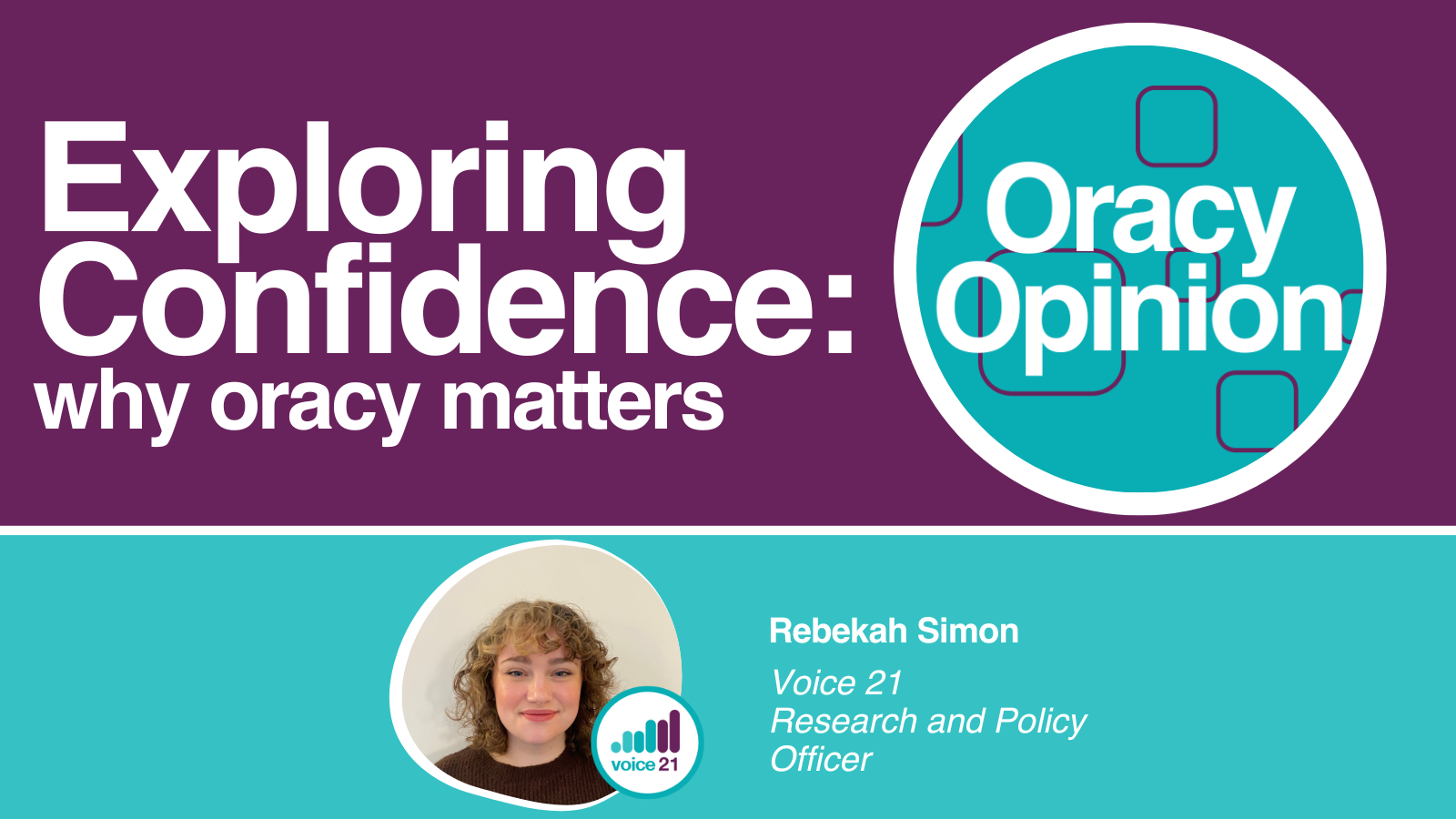
As educators, we want students to grow in confidence throughout their learning experiences. In our 2021-2022 Impact and Insights report, we discussed how oracy plays an essential role in developing students’ confidence. Here, we take a closer look at the different aspects of student confidence around oracy.
Our recent research of over 5000 students aged between 5 and 16 identified and labelled student confidence across four coded categories:
Our research revealed that oracy makes younger students feel more confident about their academic performance, while it helps older students to feel more confident about their social and emotional skills. But how can we better understand student confidence in schools and the ways oracy can support students? Here we have highlighted four key areas in which our research has suggested oracy can support student confidence.
Oracy is also essential for boosting students’ academic confidence across subjects. Having an oracy-rich classroom where students are given the space to explore their ideas with their peers can make them feel more confident in their own ideas as well as their academic performance.
Because oracy helps students learn both to talk and through talk, it allows students to gain the knowledge and confidence that they need to be able to use a range of talk types in various contexts. It also helps students on a cognitive level; by discussing topics and ideas that they are learning about, they can deepen their understanding across all subjects and phases, and also by hearing and engaging with the ideas and opinions of their peers.
One of the things that we hear most often from our students is that oracy helps them to express how they feel and have better relationships with their peers. In our annual oracy surveys, many students cited oracy as something that makes them feel more confident socially and emotionally. This included responses about their ability to make friends and talk to peers, and their ability to express their feelings and needs.
It is vital that students have confidence in their ability to create and maintain relationships with peers and articulate their needs to people who can help. It creates a more considerate and open classroom environment and helps students acquire skills that will help them long after they have finished school, both in their personal lives and in the workplace.
Embedding a high-quality oracy education into classrooms is essential for helping students to gain social and emotional confidence. By fostering a classroom that values every voice and where students feel comfortable speaking in front of peers, engaging in exploratory talk, and fully engaging in discussions, we give students the opportunity to learn how to better form relationships, listen to and engage with other points of view, and learn how to express their needs.
Voice 21 offers a range of tools and strategies that can help you bring oracy into your classroom practice and help your students gain better social and emotional confidence. To help encourage better group talk, see our resources on groupings, or try a Harkness discussion.
The Sutton Trust report Speaking Up found that accent discrimination is still prevalent across England and that people with accents associated with traditionally working-class areas and ethnic minority accents still face prejudice and discrimination in school and in the workplace. However, the report also noted that displaying confidence when speaking in any accent is highly valued. In fact, research results show that how confidently someone speaks is a greater factor in how they are perceived than their accent.
It is essential that students feel comfortable with the way in which they speak, both for their well-being and to help them portray themselves as confident speakers. In our oracy surveys from Summer 2022, our students frequently talked about how oracy made them more confident about their future careers and education (categorised as expectancy for success). Instilling students with the confidence and belief that their voices matter regardless of the way that they speak is essential for creating equitable communities and opportunities. Our Oracy Teacher Benchmarks also highlight this.
Our students also reported much higher feelings of anxiety around the transition from primary to secondary school. This is a trend that was apparent in our oracy surveys, as well as our two-year project ‘Voicing Vocabulary,’ which aims to bring together primary and secondary schools and look at the importance of oracy for improving students’ vocabularies.
Oracy is an essential tool to combat the anxiety that students feel around the transition. It can both help students to have a better grasp on the vocabulary and speaking skills that they need to excel academically at secondary school and can also help them feel more confident about their academic performance and outcomes.
Teachers should make sure that they are accounting for the nervousness, shyness, and anxiety that students may feel around the transition and the anxiety that they might feel around speaking in front of people. However, by teaching students the oracy skills that they need to express themselves and excel in a variety of contexts and situations, we can better prepare students for the move to secondary school, and help them feel more confident as speakers generally. It is essential that students experience supportive classrooms where they feel that every voice is valued and that they have the opportunity to be listened to.
Oracy offers an opportunity for students to gain confidence as speakers and become more comfortable using their voices to advocate for themselves. Our research has shown that students who can access a high-quality oracy education experience increased social, emotional, and academic confidence and that speaking confidently mitigates accent discrimination. This confidence is essential for students’ ability to articulate ideas, develop understanding and engage with others through spoken language. This is at the heart of Voice 21’s mission of creating a route to social mobility and empowering students to find their voices.
© 2024 Voice 21. Voice 21 is a registered charity in England and Wales. Charity number 1152672 | Company no. 08165798